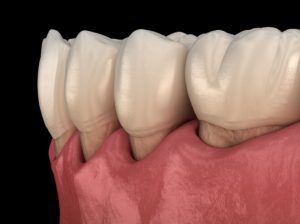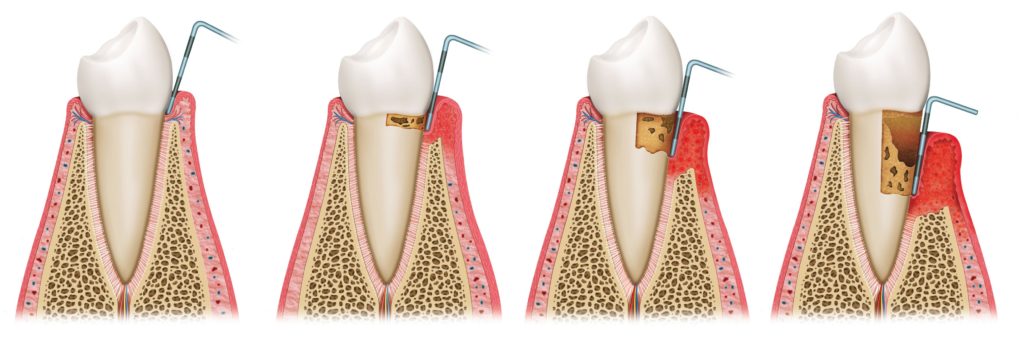Periodontal (Gum) Disease
What is periodontal or gum disease?
Periodontal disease is an infection that affects the gums and bone supporting the teeth. When someone has periodontal disease, the gums pull away from the teeth and form pockets. If periodontal disease is left untreated, the gums and bone that support the teeth are damaged. Teeth can eventually fall out or need to be removed.

What causes periodontal disease?
Periodontal disease can be caused by poor oral hygiene, tobacco products, certain diseases and medications, hormones, genetics, or passing bacteria between family members. The root cause of periodontal disease is plaque (or bacteria) that sit on the teeth. Plaque irritates and inflames the gums and the gums pull away to form pockets.
How do I know if I have periodontal disease?
You can have periodontal disease and experience no pain or symptoms. Our hygienists will use an instrument to gently check the measurements of your pockets. When gums are healthy, the measurement will be 3mm or less. The more severe the disease, the deeper the pockets.

How is periodontal disease treated?
Treatment depends on the type of gum disease and how severe it is. If the disease is caught in the early stages (when it is gingivitis), you may simply need a professional cleaning.
If your disease is more severe or does not respond to a simple cleaning, we may recommend a “scaling and root planing” (SRP). SRP treatments include removing plaque and tartar down to the bottom of each pocket. The root surfaces are also smoothed with instruments to allow gums to reattach to teeth and reduce your pocket sizes. SRP treatments are done over several appointments and we may have you back for more frequent visits to monitor your disease.
